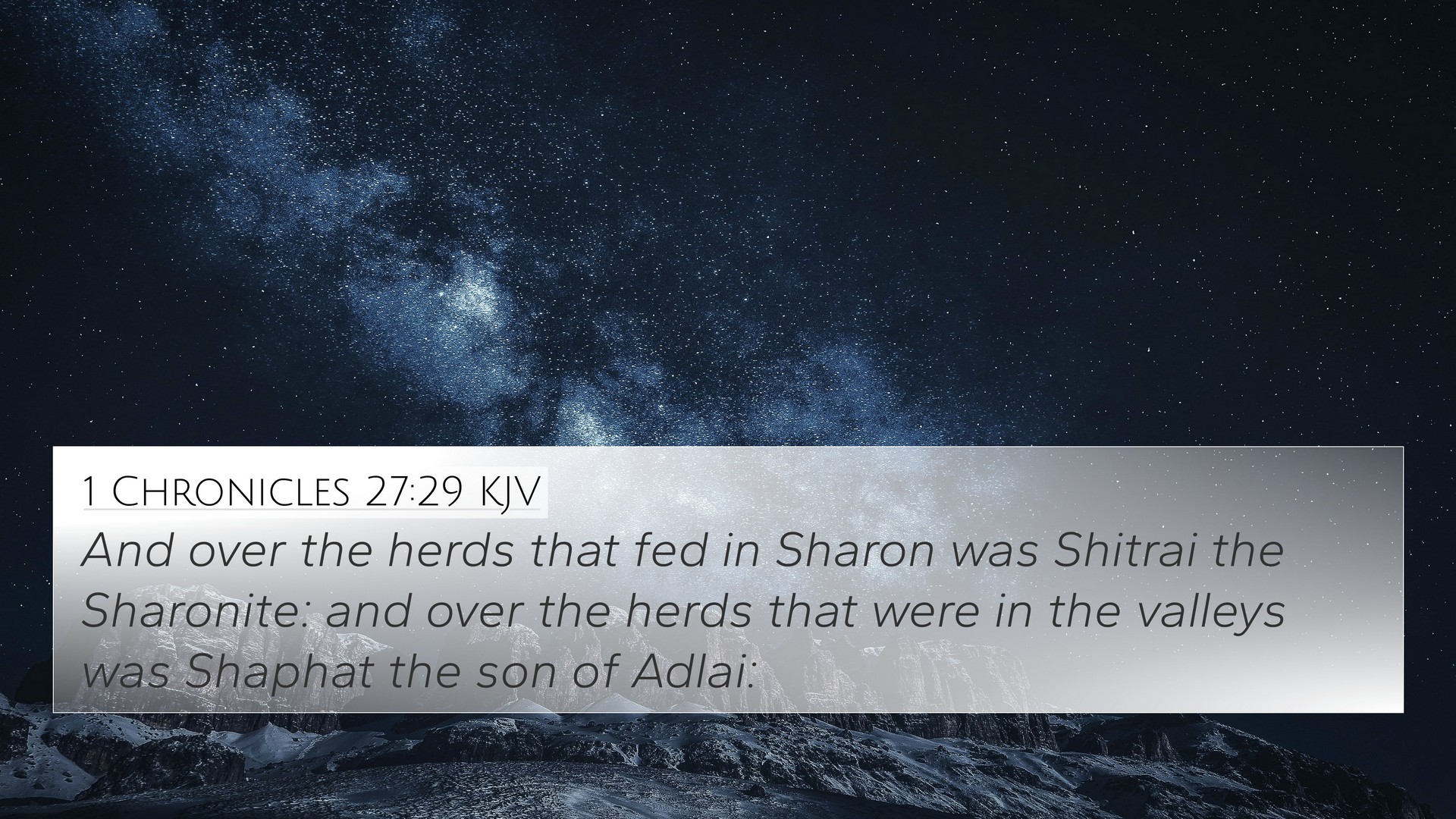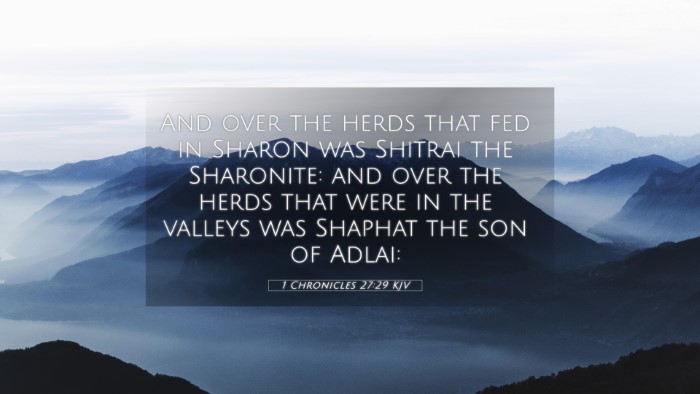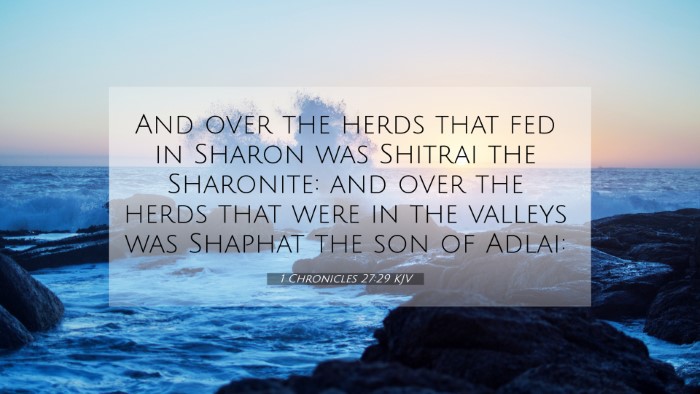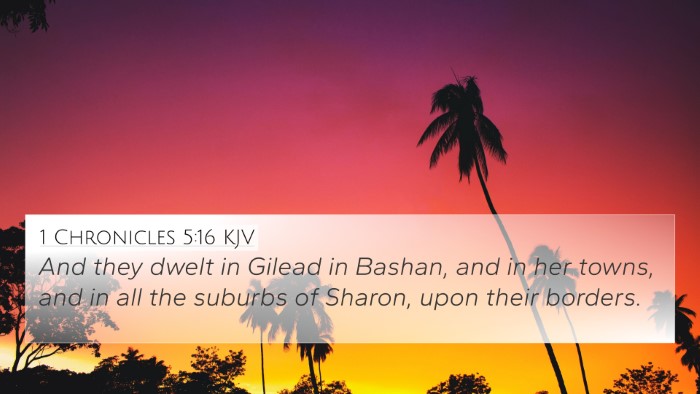Understanding 1 Chronicles 27:29
Verse: 1 Chronicles 27:29 - "And over the herds that fed in Sharon was Shitrai the Sharonite: and over the herds that were in the valleys was Shaphat the son of Adlai."
This verse details the organization of King David's administration, specifically noting the individuals responsible for overseeing the royal herds, an important aspect of agricultural and economic life in ancient Israel.
In-Depth Analysis
From the insights derived from notable public domain commentaries by Matthew Henry, Adam Clarke, and Albert Barnes, we can draw the following points:
- Contextual Significance: This verse is part of a larger narrative that outlines King David's military and civil administration, showcasing how David managed his kingdom with efficiency and order.
- The Role of Shitrai: Shitrai, described as "the Sharonite," indicates a geographical designation that highlights the importance of the region of Sharon for royal resources and agriculture.
- The Valley Herds: Shaphat’s oversight of herds in the valleys signifies the importance of varied agricultural management, considering the different environmental conditions of the valleys compared to the plains.
- Leadership Qualities: This enumeration of appointed officials illustrates the qualities of wise leadership and delegation within David's reign, which was essential for the stability of his kingdom.
- Cultural Importance: The herds not only had economic value but were often linked to social status and sacrificial systems in Israelite worship, highlighting their broader cultural significance.
Cross-References and Connections
This verse provides fertile ground for inter-Biblical dialogues and can be cross-referenced with several other passages that deal with themes of leadership, agricultural management, and the organization within the Israelite community:
- 2 Samuel 8:2 - Discusses David's conquests and administration, reflecting on his management strategies.
- 1 Kings 4:25-28 - Illustrates Solomon's peace and prosperity, indicating continuity in royal herding practices.
- Psalms 65:9-13 - Talks about God's provision for the earth, which relates to the blessing of livestock.
- Deuteronomy 11:10-12 - Mentions the significance of land and agriculture in Israel, forming a backdrop to understanding resources.
- Genesis 30:31-36 - A narrative that discusses livestock and breeding, showing its importance in the lives of the patriarchs.
- Isaiah 5:17 - Highlights the relationship between land and animals under God's oversight.
- Matthew 6:26 - Jesus references God's provision for birds and by extension, for livestock, linking spiritual themes with earthly provisions.
- Jeremiah 31:24-25 - Reflects on the abundance and care of God's people, which can parallel the stewardship in 1 Chronicles 27:29.
- 1 Peter 5:2 - Exhorts leaders to care for their flocks, embodying the leadership principles found in David’s administration.
- 2 Corinthians 9:10 - Discusses God as the one who provides seed and bread, reflecting on the provision aspects highlighted in this verse.
Thematic Connections
This verse can also be tied into broader themes found throughout the Bible:
- Stewardship: The concept of stewardship is pervasive in Scripture, where leaders are called to manage God's resources wisely.
- Divine Provision: God’s provision for His people through agricultural blessings is reflected throughout both the Old and New Testaments.
- Leadership: Effective leadership is a continuing theme from David through to Christ and the Apostles, underscoring the importance of wise and caring leadership.
- Community Organization: The structure of society and the role of various leaders illustrates the moral and ethical responsibilities inherent in community life.
Conclusion
The insights derived from 1 Chronicles 27:29 provide a snapshot of the intricate organization within Israel's leadership systems during David's reign. It emphasizes the importance of effective resource management and reflects a broader theological significance around stewardship, leadership, and divine provision, themes that resonate throughout the entire Biblical narrative.




